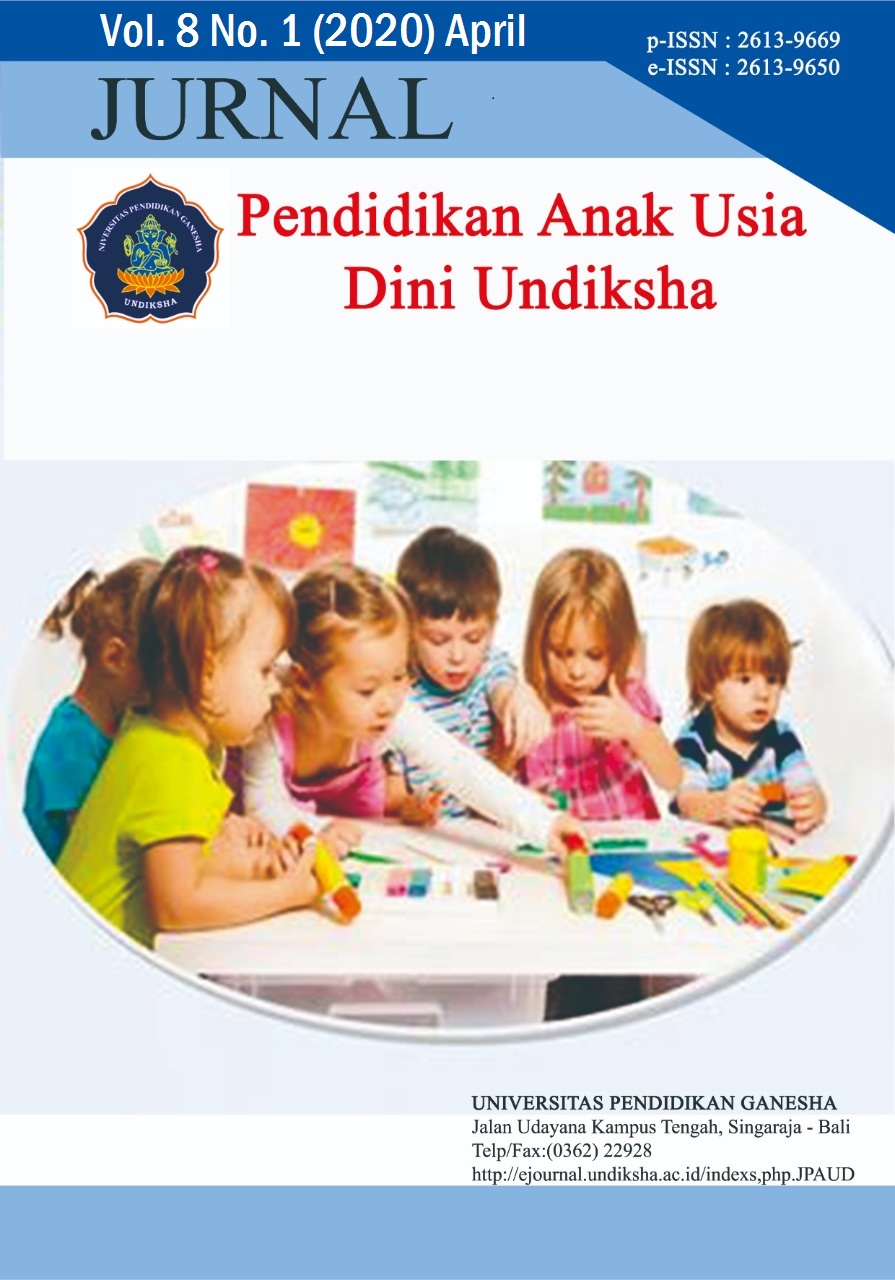Pengaruh Metode Outbond terhadap Kemampuan Berpikir Kreatif Kelompok B Gugus I Kecamatan Sawan
DOI:
https://doi.org/10.23887/paud.v8i1.23419Abstract
This study aimed at determining the significant differences in creative thinking abilities between groups that were given an outbound training method and the groups that were given an expository learning in children of group B in Gugus I Kecamatan Sawan in academic year 2019/2020. This study used a quasi-experimental research design with pre-test and post-test control group design. The population of this study were all children of Group B in Gugus I Kecamatan Sawan with a total of 208 children. The sampling technique used in this study was a random sampling technique. The sample in this study were the children of group B in TK Widya Sesana Desa Sangsit consisted of 26 children as an experimental group who were given learning by using an outbound training method. Meanwhile, the children of B group in TK Tujuh Belas Agustus Desa Bungkulan consisted of 25 children were as a control group who were given learning by using an expository learning strategy.The data on children's creative thinking abilities were collected by observation and interview techniques which were analyzed using descriptive statistical analysis and inferential statistics, namely t-test. Based on the results of data analysis showed that the tcount is 27.19 and ttable with a significance level of 5% and dk = 49 is 2.01. The results indicated that tcount>ttable, the average post-test result of the experimental group is 50.65 and the average post-test result of the control group is 42.56, meaning that the average results of the experimental group> the average results of the control group. The results showed that there are significant differences in creative thinking abilities between groups that were given an outbound learning method and the groups that were given expository learning in children of group B in Gugus I Kecamatan Sawan in academic year 2019/2020.
Keywords: creative thinking abilities, outbound training, early childhood children
Downloads
Published
How to Cite
Issue
Section
License
Authors who publish with the Jurnal Pendidikan Anak Usia Dini Undiksha agree to the following terms:
- Authors retain copyright and grant the journal the right of first publication with the work simultaneously licensed under a Creative Commons Attribution License (CC BY-SA 4.0) that allows others to share the work with an acknowledgment of the work's authorship and initial publication in this journal.
- Authors are able to enter into separate, additional contractual arrangements for the non-exclusive distribution of the journal's published version of the work (e.g., post it to an institutional repository or publish it in a book), with an acknowledgment of its initial publication in this journal.
- Authors are permitted and encouraged to post their work online (e.g., in institutional repositories or on their website) prior to and during the submission process, as it can lead to productive exchanges, as well as earlier and greater citation of published work. (See The Effect of Open Access)











